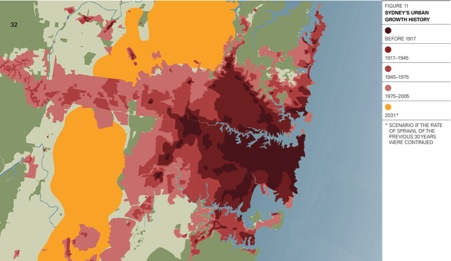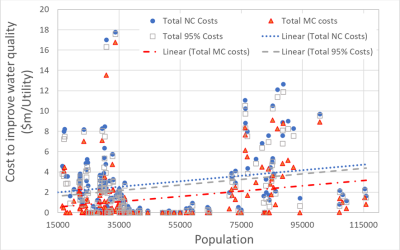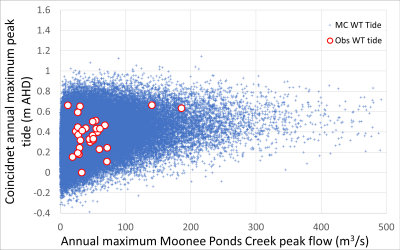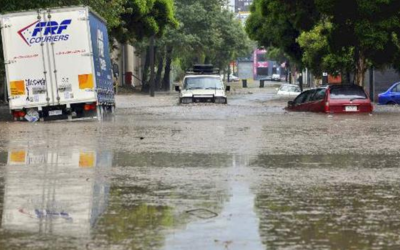
Use of average water demands that replace spatial and temporal detail of cities in analysis of regional water systems generates dramatic reductions in certainty about system behaviour that leads to large uncertainty in understanding of the performance of the system. The use of global averages in simulation of regional water systems is unlikely to describe the spatial and temporal contribution provided by distributed WSUD approaches that generate water resources or reductions in water demands within a metropolis.
It is recommended that analysis of regional water resources for cities use spatially and temporally explicit methods of systems analysis to understand the security of urban water supplies. Otherwise, the full potential of alternative water management options including WSUD approaches may not be understood.
Presentation: Impact of spatial and temporal averages on water security
Paper: Impact of spatial and temporal averages on water security






